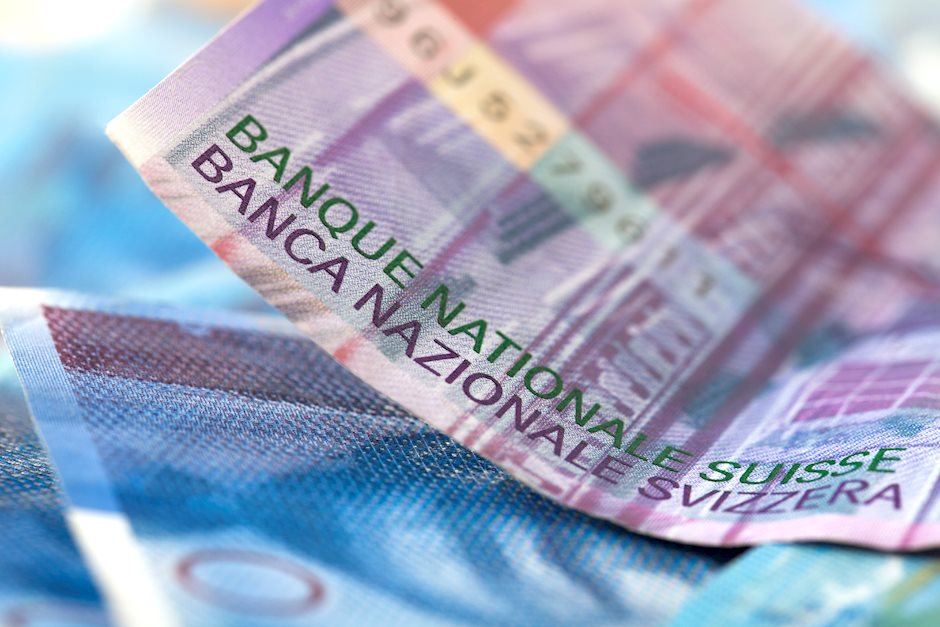Swiss Franc keeps even against Pound despite Bailey focusing on inflation
- The Swiss Franc declined versus the Pound Sterling after BoE governor Bailey insisted on significance of lowering inflation.
- Bailey said households were coping better than expected and wages were rising.
- The GBP/CHF moved back to even later in the session as the Swiss Franc gained strength.

The Swiss Franc (CHF) moved from a session based around weakness on Wednesday against the Pound Sterling (GBP) before strengthening to cuts its losses late in the day. The initial weakness stemmed from the Governor of the Bank of England (BoE), Andrew Bailey, testifying before members of Parliament at the UK Treasury Select Committee.
Overall market sentiment is positive, with the Dow Jones Industrial Average and S&P 500 both edging higher on Wednesday. This marginally aids the Pound more than the safe-haven Swiss Franc.
Daily digest market movers: Swiss Franc trades lower versus the Pound Sterling as Bailey emphasizes inflation prerogative
- The Swiss Franc lost ground initially against the Pound as BoE’s Bailey reiterates the importance of returning inflation to target at a Treasury Select Committee meeting.
- UK households with mortgages are nowhere near as stretched as during the global financial crisis and household incomes in the UK have risen in recent months, says Bailey.
- This suggests the BoE is unlikely to cut interest rates anytime soon, a stance that contrasts with most other central banks, including the Federal Reserve, which is eyeing cuts in 2024.
- The Chairperson of the Swiss National Bank (SNB), Thomas Jordan, however, sidestepped questions from journalists about when and whether the SNB was considering cutting interest rates in Switzerland at the December meeting of the bank.
- The two central banks have similar stances at the moment, although inflation is higher in the UK, perhaps indicating the Pound could strengthen longer term.
Swiss Franc technical analysis: GBP/CHF short-term recovery extends
GBP/CHF – the number of Swiss Francs (CHF) that one Pound Sterling (GBP) can buy – rises for the seventh consecutive day, extending the short-term recovery rally.
The pair is in no clear trend on any time frame, however, and despite the recovery rally entering its seventh day, even the short-term trend is debatable.
Pound Sterling vs Swiss Franc: 4-hour Chart
Analyzing GBP/CHF’s short-term trend using the 4-hour chart gives a mixed picture. Whilst the peaks and troughs are rising in a month-long series of higher highs and lows ever since the late November lows, the pair still has not broken above the critical 1.0900 level (last key lower high of the prior downtrend), which would provide more confidence that the trend had flipped from down to up.
The Relative Strength Index (RSI) is rising in line with price, suggesting the uptrend retains underlying strength. It has not entered the overbought region, which would indicate a growing risk of a pullback.
A further indication of strength is that it has broken above the 50 and 100 four-hour Simple Moving Averages (SMA).
That said, the speed of the move higher since the November lows has been rather slow when compared to the down move that preceded it – a sign this recovery could merely be a pullback within a broader downtrend.
A break below 1.0794 would suggest a recapitulation and the beginning of a new leg lower. A break above the day’s highs would suggest a continuation higher to just below the key 1.0900 level. A break above that would confirm a change in trend and more upside.
Swiss economy FAQs
Where does Switzerland stand in terms of economic power?
Switzerland is the ninth-largest economy measured by nominal Gross Domestic Product (GDP) in the European continent. Measured by GDP per capita – a broad measure of average living standards –, the country ranks among the highest in the world, meaning that it is one the richest countries globally. Switzerland tends to be in the top spots in global rankings about living standards, development indexes, competitiveness or innovation.
Where does Swiss economic growth come from?
Switzerland is an open, free-market economy mainly based on the services sector. The Swiss economy has a strong export sector, and the neighboring European Union (EU) is its main trading partner. Switzerland is a leading exporter of watches and clocks, and hosts leading firms in the food, chemicals and pharmaceutical industries. The country is considered to be an international tax haven, with significantly low corporate and income tax rates compared with its European neighbors.
How does the Swiss economy impact the Swiss Franc’s valuation?
As a high-income country, the growth rate of the Swiss economy has diminished over the last decades. Still, its political and economic stability, its high education levels, top-tier firms in several industries and its tax-haven status have made it a preferred destination for foreign investment. This has generally benefited the Swiss Franc (CHF), which has historically kept relatively strong against its main currency peers. Generally, a good performance of the Swiss economy – based on high growth, low unemployment and stable prices – tends to appreciate CHF. Conversely, if economic data points to weakening momentum, CHF is likely to depreciate.
Do commodity prices impact the Swiss Franc’s valuation?
Switzerland isn’t a commodity exporter, so in general commodity prices aren’t a key driver of the Swiss Franc (CHF). However, there is a slight correlation with both Gold and Oil prices. With Gold, CHF’s status as a safe-haven and the fact that the currency used to be backed by the precious metal means that both assets tend to move in the same direction. With Oil, a paper released by the Swiss National Bank (SNB) suggests that the rise in Oil prices could negatively influence CHF valuation, as Switzerland is a net importer of fuel.
Author

Joaquin Monfort
FXStreet
Joaquin Monfort is a financial writer and analyst with over 10 years experience writing about financial markets and alt data. He holds a degree in Anthropology from London University and a Diploma in Technical analysis.
-638405001148583533.png&w=1536&q=95)

















